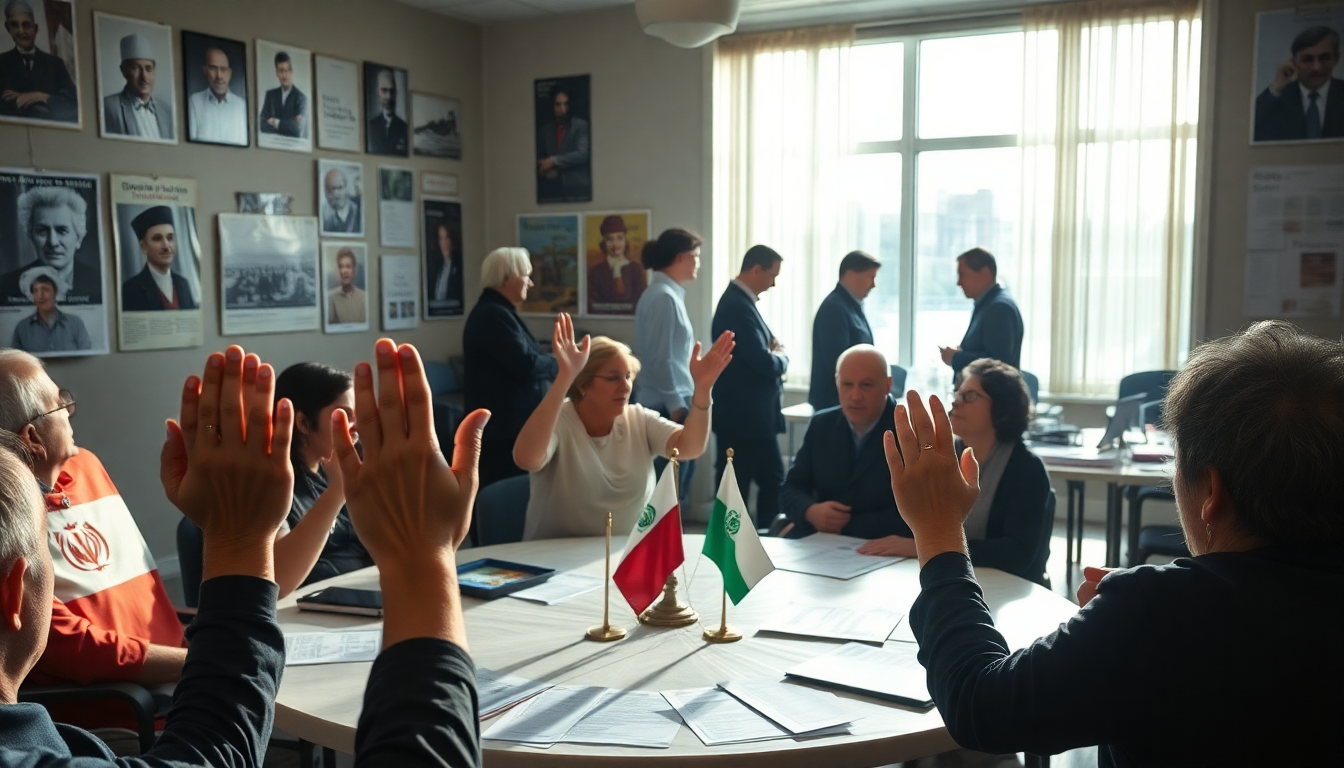Table of Contents
On a recent Sunday, a wave of concern swept through the Iranian Canadian community and Jewish groups as U.S. military strikes hit three Iranian nuclear sites. This action has fueled fears of escalating violence in the Middle East, but what’s more alarming is how it affects the lives of individuals right here in Canada. How do these international conflicts shape our local communities?
Community Voices and Concerns
Nimâ Machouf, a member of a Montreal Iranian women’s association, perfectly encapsulated the distress many are feeling when she shared that her family in Iran lives in constant fear, “from one bomb to another.” It’s a sentiment that’s resonating deeply among Iranian Canadians, who worry that these U.S. strikes could further ignite violence in a region already drowning in conflict. Machouf, who has a background as an epidemiologist and has run for political office, stresses that military actions often harm those who are desperately seeking liberation from Iran’s oppressive regime. “People feel abandoned by everyone, everywhere,” she noted, highlighting a pervasive sense of isolation.
This feeling of abandonment isn’t just an isolated concern; it’s echoed throughout the broader community. Many individuals are grappling with the implications of international military involvement in their homeland. Machouf’s insights reflect a shared anxiety among Iranian Canadians: the fear that foreign interventions might not only fail to protect civilians but could also deepen their suffering.
Heightened Security Measures in Canada
In response to this escalating situation, police departments in Toronto and Vancouver are ramping up their presence, signaling a proactive approach to potential unrest. Social media posts from these departments confirmed that increased police visibility would be deployed in places like places of worship, community centers, and diplomatic buildings. The aim? Ensuring the local community remains safe and that any protests stay peaceful amidst rising tensions.
Toronto police have indicated that increased patrols will be implemented as necessary, while Vancouver police are collaborating closely with local faith leaders to address safety concerns stemming from these international conflicts. These measures serve as a reminder of how interconnected global events are with local responses, as communities navigate their feelings of safety and belonging in such uncertain times.
Political Reactions and Future Implications
Prime Minister Mark Carney took to social media to express that the U.S. military action was a necessary response to the perceived threat posed by Iran’s nuclear ambitions. He reiterated Canada’s firm stance against allowing Iran to develop nuclear weapons, emphasizing the importance of international security. However, he also recognized the volatility of the situation and urged all parties to return to diplomatic negotiations to seek a peaceful resolution. Can we realistically expect diplomacy to prevail in such a heated environment?
Noah Shack, the interim president of the Centre for Israel and Jewish Affairs, echoed Carney’s sentiments, calling Iran’s nuclear program a serious threat to global peace. He underscored the need for a strong Canadian stance against the Iranian threat, advocating for actions that prioritize safety in the region.
On the flip side, Kaveh Shahrooz, a lawyer and senior fellow, highlighted the deep concerns among Iranians regarding potential civilian casualties resulting from U.S. actions. He pointed out the glaring lack of adequate protection for civilians in Iran, where the regime offers no air raid sirens or shelters, leaving citizens vulnerable and anxious. How can we ignore the human cost of these military actions?
As discussions continue, opinions within the Iranian Canadian diaspora are remarkably diverse. Some express anger towards the strikes, while others view military intervention as a long-overdue measure against the Iranian regime. Yet, Machouf critiques the notion that Israel will “liberate” the Iranian people, asserting that any meaningful change must come from within the country itself. Isn’t it time to empower local voices instead of imposing solutions from abroad?
Community Mobilization and Activism
In light of these events, community groups are coming together to express their views. Gur Tsabar, a spokesperson for Jews Say No to Genocide, announced a rally titled “Hands Off Iran,” aimed at advocating for a two-way arms embargo and denouncing the actions of both Israel and the U.S. This rally, co-organized by various groups including the Iranian Canadian Congress, reflects the rich tapestry of perspectives within the community and a collective desire to tackle the complexities of international relations.
This situation underscores a vital truth: while conflicts in the Middle East may seem far away, their repercussions resonate deeply within immigrant communities in Canada, shaping their sense of security and identity. As the situation evolves, the Iranian Canadian community remains vigilant, balancing their hopes for peace with the realities of a volatile geopolitical landscape. What can we do to ensure that our voices are heard and that we stand in solidarity with those affected?


